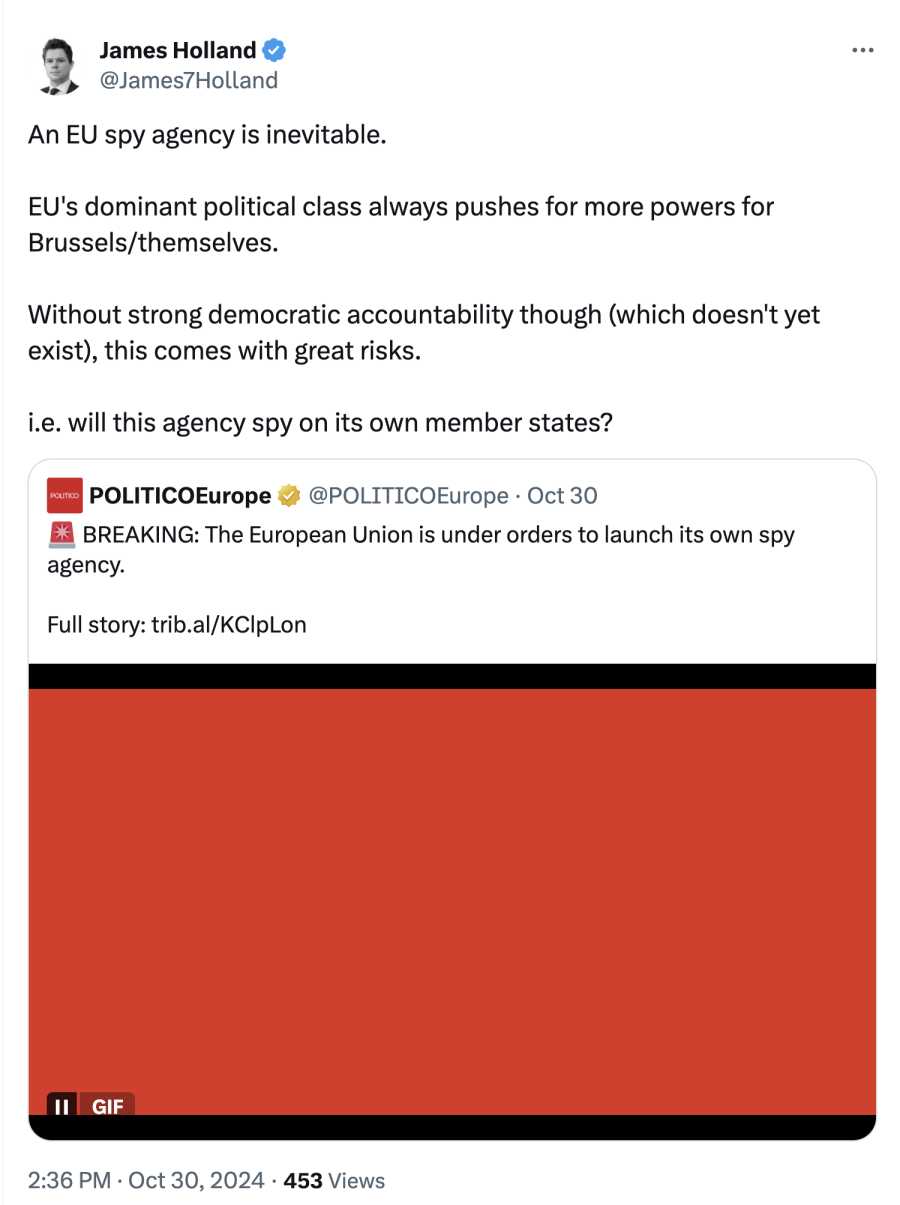In a statement to Gript, the Department of Justice confirmed that it is examining a proposal for Ireland to join a prospective EU intelligence service to rival the US-dominated Five Eyes network following a report by the European Commission this week.
Plans are underway to establish an as-yet nameless “CIA-style European spy service” following a report by former Finnish President Sauli Niinistö calling on Brussels to coordinate its counterespionage efforts against Russia and China in particular.
Under the proposals, Ireland would take greater direction from Eurocrats in surveilling for foreign agents and protecting against saboteurs targeting critical infrastructure in what would constitute a major shift in the Republic’s intelligence outlook.
Particular reference is made in the report on the need to “enhance counter-espionage work in the EU institutions,” following a string of spy scandals involving agents from China, Russia, and Morocco operating within the European Parliament over the last 18 months.
Responding to Gript inquiries a spokesperson for the Department of Justice stated they would be “considering the report over the coming period” as the fallout continues over allegations of a Russian spy within the Houses of Oireachtas.
Currently, Ireland’s intelligence workload is handled by An Garda Síochána’s Special Detective Unit and the Defence Force’s G2 handling domestic and foreign threats respectively with the EU maintaining only a nominal intelligence force through its EEAS foreign wing.
Dublin already has an intelligence-sharing agreement with the EU under the Prüm Convention to tackle cross-border crime and the ITPP arrangement with NATO to surveil Irish maritime waters.
The attempts at creating a distinct EU intelligence agency are part of a wider move of militarisation within the bloc as Fine Gael MEPs and others look set to rubberstamp former Lithuanian prime minister Andrius Kubilius as the first European Defence Commissioner next month in Brussels.
The Irish Defence Forces are already playing an increasingly active role in EU Battlegroups often dubbed by critics as an embryonic “EU Army” as Brussels insiders predict militarisation to dominate the bloc’s agenda ahead of even the Green Deal over the next five years.
Reactions to the proposal were scathing with former EU Parliamentary staffer James Holland describing that “without strong democratic accountability though (which doesn’t yet exist), this comes with great risks” about the plans adding that there was a possibility the agency could be used to spy on member states.
https://twitter.com/James7Holland/status/1851634162513453132

Speaking to Gript about the challenges facing Brussels former head of EU affairs at the Alexander Institute and crisis management expert Timo Hellenberg said Europe had a lot to do to match the Kremlin’s spy services “built primarily on human intelligence and systematized eliminations.”
Outlining the pitfalls in creating an EU intelligence agency Hellenberg added that European nations had varying political dynamics, vying national interests, legal frameworks as well as language barriers that would pose existential challenges to the agency’s creation.
Any prospective EU intelligence agency would face an arduous task to come into being through both the European Parliament as well as approval from member states.
Russia’s invasion of Ukraine and a cyberattack on the HSE have accelerated a reform of Ireland’s security establishment with the government appointing Mr Justice George Birmingham last month to oversee a reform of the nation’s intelligence apparatus.